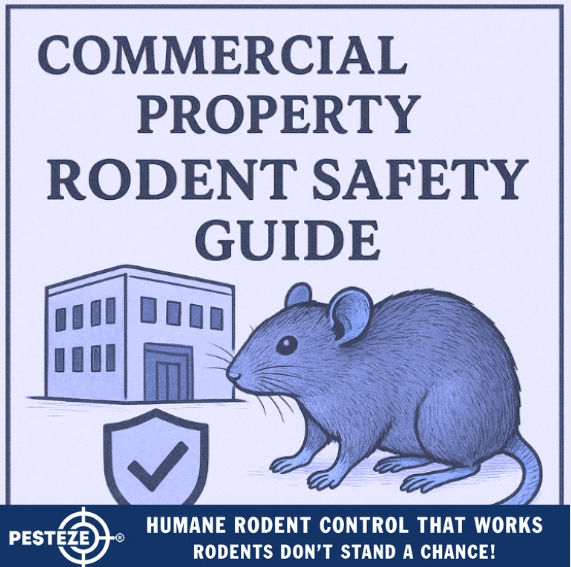COMMERCIAL PROPERTY RODENT SAFETY GUIDE

COMMERCIAL PROPERTY RODENT SAFETY GUIDE
SUMMARY
Rodents can cause extensive damage to commercial properties by contaminating goods, chewing wiring, and scaring away clients or tenants. This guide provides effective prevention and safety measures to protect your property, ensure compliance, and maintain a professional environment.
FEATURES
-
Building Inspections: Regularly check for rodent activity and vulnerabilities.
-
Entry Point Sealing: Close gaps around doors, vents, and utility lines.
-
Waste Management: Implement strict trash storage and disposal practices.
-
Rodent-Proof Storage: Secure supplies and materials in sealed containers.
-
Monitoring Systems: Use traps or electronic devices for early detection.
-
Professional Services: Partner with pest control experts for ongoing protection.
GUIDE DESCRIPTION
Commercial properties, from office buildings to warehouses, are prime targets for rodents due to their large spaces, food sources, and multiple entry points. Left unchecked, a rodent infestation can damage structures, create safety hazards, and harm your reputation with tenants or clients. For property managers and owners, implementing a comprehensive rodent safety strategy is vital to preserving operations and property value.
Regular building inspections should be the foundation of rodent prevention. Facility managers must look for signs of infestation such as droppings, gnaw marks, nests, or unusual odors. Proactive inspections allow problems to be detected early before rodents spread throughout the property.
Sealing entry points is another critical step. Rodents can squeeze through gaps as small as a quarter-inch, making doors, vents, windows, and utility openings common weak spots. Using steel mesh, weather stripping, and caulk ensures that rodents are blocked from gaining access to the building.
Proper waste management is essential in commercial environments. Overflowing trash bins or poorly sealed dumpsters can attract rodents quickly. Trash should be stored in secure, rodent-proof containers, emptied frequently, and kept in designated disposal areas away from building entrances.
For facilities that store food or valuable inventory, rodent-proof storage is a must. Sealed containers, pallets that elevate supplies, and regular inventory checks help protect goods from contamination and damage. This not only reduces losses but also keeps the property compliant with safety standards.
Monitoring systems add another layer of security. From traditional snap traps to advanced electronic monitoring, these tools help detect rodent presence before infestations escalate. Early detection ensures timely action, minimizing disruption to tenants and staff.
Finally, professional pest control services provide long-term protection. Experienced providers can design tailored rodent management programs, conduct regular treatments, and provide expert recommendations to maintain a rodent-free environment year-round.
By combining inspections, entry control, waste management, storage, monitoring, and professional services, commercial property managers can protect both infrastructure and people. A proactive rodent safety plan not only ensures compliance with regulations but also creates a safe, clean, and welcoming space for employees, clients, and visitors.
- Aahna Barma


Comments 0